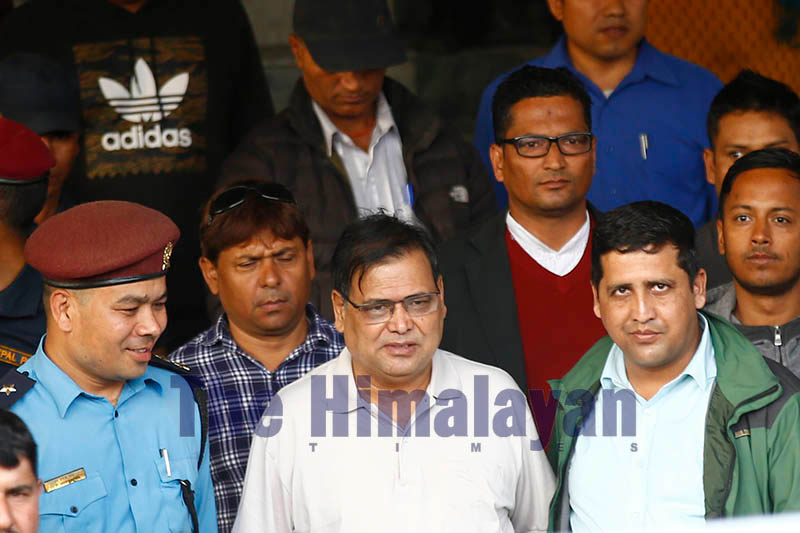Shahi’s retraction ‘can backfire’
- Will have no effect on outcome of the case: Lawyers
Kathmandu, October 21
Parliament Secretariat staffer Roshani Shahi, who registered an application at Kathmandu District Court yesterday retracting her statement lodged in a first information report accusing former speaker Krishna Bahadur Mahara of attempting to rape her, may face action on her latest move.
Prof Rajit Bhakta Pradhananga, who specialises in criminology, said, “As per Section 89 of the new penal code, Kathmandu District Court can take suo motu action against Shahi if it believes she has tried to prepare false evidence, as doing so is an offence against public justice.”
Pradhananga said there were a few cases where the persons who had lodged FIRs were punished for retracting their statements later.
Spokesperson for the Office of the Attorney General Sanjeeb Raj Regmi said in criminal cases the court allowed victims to record their statements only when it served them notices to do so on particular dates. “A victim cannot approach the court anytime to say what s/he wants to,” Regmi said. He said a victim could, however, always assist police if s/he came up with new piece of evidence to support her/his claims.
Lawyers say Shahi’s latest statement cannot make any difference if police file an attempt-to-rape case against Mahara in the court and there are other evidences to corroborate the victim’s claims that she first made in her FIR.
There are a number of sexual violence and women trafficking cases where courts have convicted the accused despite the victim’s retraction, said a government attorney who preferred anonymity. “Courts take cognisance of the fact that in cases of sexual violence, victims face pressure to retract their statement. Therefore, courts decide such cases on the basis of other evidences,” the source added.
Senior Advocate Satish Krishna Kharel cited a case of a man who lodged an FIR with Kathmandu police on 6 October 2018, alleging that her daughter was raped by a man who brought her from a Tarai district to Kathmandu where he and two other persons who knew his daughter raped her.
According to Kharel, the victim, who was a juvenile at the time of the incident, later filed a habeas corpus petition stating that the accused did not do anything to her and was innocent, but the court did not entertain her petition. Prior to that, the victim had also filed an application at Kathmandu District Court retracting her statement.
According to Kharel, the victim even said that her father coerced her into signing the document at Janasewa Police Station in Kathmandu.
“Kathmandu District Court has convicted the man of rape and imposed a jail sentence of 10 years and a fine of Rs 50,000 on him,” Kharel said. He added that the case was sub judice in a high court. KDC convicted the accused on the basis of circumstantial evidence and the statement the victim had recorded before police.
He said the court convicted the accused even though the doctor who had examined the victim deposed in the court that despite rupturing of the victim’s hymen, there was no conclusive evidence that could suggest she had been raped.
“This case shows that a victim’s retraction of her statement has no meaning if the court finds other evidence to corroborate the FIR,” Kharel said. He said the court had the authority to punish a victim under perjury law if it was proved that she had made a false claim.






